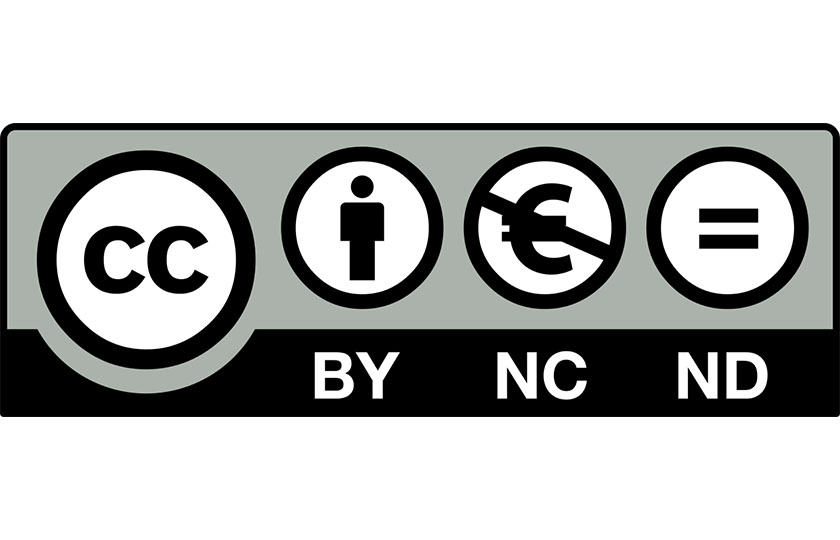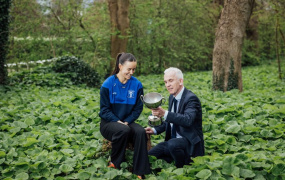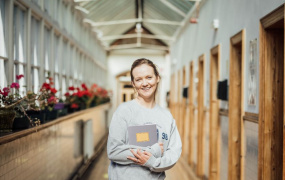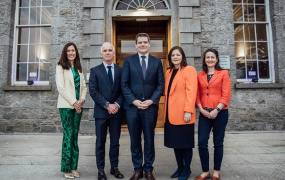Speaker Bios and Abstracts
Day 1: Monday 14 October

Keynote Speaker (10am) - Dr Xianghan (Christine) O’Dea
"GenAI is Here to Stay. What is the Way Forward for Higher Education Globally?"
Abstract
Following the launch of ChatGPT in Nov. 2022, academic institutions have developed GenAI guidelines and principles in place or are at an advanced stage of doing so. In addition, most educators have already developed some basic understanding of Generative AI (GenAI) and LLM and become aware of the impact of such technology and tools on learning and teaching in higher education.
To move forward, we need to concentrate on the following areas: 1) AI literacy training for staff and students; 2) practical and nuanced solutions and guidance at the programme and module level; 3) examples for individual disciplines and address different types of assessments and 4) a clearer understanding of industry expectation of students’ AI/GenAI skills.
Biography
Xianghan (Christine) O’Dea is a Senior Fellow of Higher Education Academy, and Senior Lecturer in Management and Technology Education in the Department of Public Services Management & Organisation at King’s Business School, King’s College London, UK. Her research focuses on AI in education (AIEd), with a particular focus on Generative AI (GenAI) and AI literacy; digital transformation and digital education, and has published extensively in these areas. She is editing two books on GenAI literacy, titled “Effective Practices in AI literacy Education: Case Studies and Reflections” (Emerald, forthcoming, Nov. 2024) and “From AI Literacy to Generative AI Literacy: Theory, Policy and Practice.” (Springer, forthcoming, Dec. 2024). Currently Christine is Co-Editor-in-Chief of AI in Education (An Emerald Open Access Journal).
Panel One - 11.30am
Perspectives and Experiences: Co-Design and Stakeholder Engagement.
Title
Teaching Librarians Tackle GenAI: Data Driven GenAI Workshops in the Library.
Abstract
As AI technologies continue developing, especially with the advent of ChatGPT 4, inevitable differences in the way students engage with learning, and also unfortunately offload learning, will arise. The uproar caused by ChatGPT 4 and various services that function using ChatGPT 4 created a rift and massive debate in higher education on what to do about it. Due to the nature of the library, teaching librarians are uniquely positioned to conduct research on how students are actually using and implementing genAI in their educational practice. This is due to the fact that librarians are often confided in by students in ways many faculty and staff are not. This is likely because they are not lecturing staff involved with marks yet are perceived as academic staff and purveyors of knowledge. This paper is going to discuss the teaching librarians’ role in researching generative AI at DBS, via primary research conducted using survey questions, in addition to participant observation, namely having informal conversations with both students and faculty about the technology, how it is being used, fears that come with it, and the benefits. Further, this paper will discuss how this data was used and implemented into a generative AI workshop for students which followed university policy and also pushed for greater clarity on said policy for how students should implement generative AI in their studies, how to reference when using generative AI, and how lecturers should respond to the use of generative AI. The policy and workshop helped each other tease out specific points while developing future steps for providing better recommendations for students and faculty across the institution.
Biography
David is an Information Literacy and Research Librarian. He studied the MLIS at RGU and has an M.A. from the University of Florida in Latin American Studies. David is a member of NAIN and has taken great interest in GenAI. Find him on LinkedIn or via email David.Rinehart@dbs.ie.
Title
Exploring the Use of GenAI in Assessment with Academics Across and Within the Disciplines.
Abstract
Since the release of ChatGPT in November 2022 and the subsequent plugins, updates and release of related tools, academics have been grappling with questions such as ‘How do I make my assessment GenAI proof?’, ‘How do I know my students really did this work?’, ‘If students are using these tools anyway, shouldn’t we just embrace AI?’, and many more. From our work with academics across our university, we have heard many different questions and seen many different approaches, from wanting to ‘GenAI proof’ assessment to designing assessment that encourages students to use the tools available. This variation does not just happen between disciplines but also within disciplines. Therefore, what is acceptable use of GenAI is not black and white for either students or staff. Through the use of scenarios, we prompt academics to examine the approach they are taking, consider the potential implications of this, and compare their approach to that being taken by colleagues, recognising the variation that students are experiencing across their modules in a given semester. This talk will share a sample of the scenarios, discuss their development, report on how academic staff are responding to scenarios and outline future plans for this approach.
Biography - Mairead
Mairead Greene is the Assistant Director in the Centre for Excellence in Learning and Teaching (CELT) at University of Galway. Mairead supports learning, teaching and assessment and manages the learning technologies team in CELT. She spent many years as a lecturer in mathematics and developed inquiry-based calculus curricula which are used internationally.
Biography - Michelle
Michelle Tooher is an academic developer in University of Galway and a contributing author to the Reflective Teaching in Higher Education books, Bloomsbury. Since 2008, Michelle has worked on supporting learning, teaching and assessment within the university, with a particular emphasis on academic integrity over the past 4 years.
Title
Using the Notion of Cognitive Offloading to Enable Adaptive Thinking in a GenAI-Augmented World.
Abstract
Generative Artificial Intelligence (GenAI) requires those in higher education to adjust our individual and collective thinking to respond productively to transformative change. Cognitive offloading is a concept that enables such adaptive thinking as it is about what forms of assistance support and hinder the learning we intend (Dawson 2020). Thinking about use of GenAI as a matter of cognitive offloading first allows us to step back from counterproductive preoccupations with banning or detecting GenAI use (Eaton 2023). Being deliberate about the purpose of assessment and applying restrictions judiciously in the interests of better learning are the heart of good assessment practice and academic integrity in a GenAI-augmented world (Perkins et al 2024). Through this presentation I will share how I persuade colleagues in a Canadian university that cognitive offloading is an essential concept for adaptive thinking in this new context. When placed at the forefront it enables (1) learners to see the rationale for permissions, limitations, and restrictions on GenAI use, (2) educators to clarify learning outcomes and redesign assessments, and (3) policy-makers to regard uses of GenAI as driven by assessment design and not inherent violations of academic integrity.
Biography
Dr Susan Bens holds the position of Academic Integrity Strategist at the University of Saskatchewan in Saskatoon, Canada. Susan leads, co-leads, and supports projects aimed at building capacity, improving systems, and creating a culture for academic integrity across the institution.
Title
GenAI LEARN: Developing Student Literacy and Responsible Use.
Abstract
The ongoing SATLE-funded GenAI LEARN project at University College Cork, which commenced in July 2024, aims to create resources with and for students that support their development of identified competencies for using GenAI tools effectively and responsibly, including ethical decision-making, evaluative reasoning, and information searching. This project takes a student-as-partners approach, identifying competencies through preliminary research, benchmarking exercises (i.e. UNESCO AI Competency Frameworks) and student consultation and then engaging student partners in the development of resources (including short learning exercises, infographics, and checklists for use) that support these. While many of these competencies are general and applicable to all learners, we also include a focus on the specific areas of translation/language comprehension and accessibility, both of which GenAI is widely used for. The principles of academic integrity underpin this project and the six fundamental values are mapped onto the competencies, clearly linking responsible GenAI use and academic integrity. This presentation will share the project design, initial student feedback, and any open-access resources developed to-date.
Biography
Dr Loretta Goff is the Academic Integrity Education Officer at University College Cork. She is based in the Skills Centre where she develops, manages, and delivers training and resources on academic integrity and related areas of academic misconduct, responsible use of generative AI, and assessment for both staff and students across the university.
Panel Two - 1.50pm
Curriculum Design, Teaching and Learning. (Part 1)
Title
Battling and/or Welcoming Gen AI: Strategies for Modern Teaching & Assessment.
Abstract
Assuring the veracity of student outputs has always been of concern, but recent developments in Generative AI have thrown a curve ball at the processes already in place. This paper explores early methods for dealing with these issues on programmes at Dublin Business School. We explore ways to design assessment with Gen AI in mind but also consider how we can embed it as a part of the teaching process. The usage of these tools by students was at first met with apprehension but then excitement as it was seen as another important tool; it has become increasingly apparent that these tools will be and are being used across industry so we have noticed that we would be seriously disadvantaging students by not including their usage in the teaching programmes. Thus, creating ways to ethically use Gen AI in our teaching while also upholding the ethical standards of assessment has been forefront in our pedagogical explorations of late. Early trials are in place for using Gen AI as a part of module teaching, but we also need to put in place mechanisms to help prevent their misuse in assessments. We have developed changes to overall assessment that reflect the need to be aware of the misuse of AI through more authentic forms of assessment. This paper deals with some of the early discussions and mechanisms discussed and developed around these issues as we both battle and welcome Gen AI.
Biography
Dr Browne is a Senior Lecturer at DBS and he has also lectured and tutored at NUI Galway, UCD, and Maynooth University. He currently coordinates the Business MBA Programmes and the 3BA Capstone Programme. He is also the Practice Research Coordinator.
Title
Artificial Intelligence in Physical Education: Opportunities, Threats, and Strategies.
Abstract
Given the impact of artificial intelligence (AI) on the education sector, it is crucial to explore its potential within physical education (PE). This study examined the roles of AI in PE, the risks of using AI, and potential strategies to ensure the optimal use of AI? Three groups of participants took part in the research: group 1 included 10 participants who took part in 4 expert panels on AI and education, group 2 included 7 PE specialists, and group 3 included 4 AI experts. The data was gathered by recording the expert panels and interviewing the other participants involved. Thematic analysis was utilized to examine the data. The first theme identified the functions of AI, including standardization of space and sports equipment, professional development of PE teachers, classroom management, educational planning, improving assessment processes, and developing learning materials. The second theme included threats such as depriving students of thinking and creativity, emotional and social damages, scientific credibility of content developed, and ethical concerns. The third theme indicated six basic strategies for the optimal use of AI: 1) necessary preventative and deterrent policies, 2) understanding problems and challenges that AI can address, 3) developing AI literacy among teachers, 4) promoting AI use with teachers, 5) provision of the necessary infrastructure for AI use, and 6) ensuring the safety and security of users. In practice, the findings highlighted the future uses of AI within PE, along with the potential negatives of AI that need to be managed.
Biography
Dr Lorcan Cronin is a Lecturer in Psychology at Mary Immaculate College. His teaching focuses mainly on the areas of sport and exercise psychology, work and organisational psychology, and applied psychology. His research focuses on enhancing young people’s life skills development through physical education, sport, and higher education.
Title
AI² - What Constitutes Academic Integrity in the Age of AI?
Abstract
This paper addresses the enduring question of academic integrity within the context of evolving educational landscapes and technological advancements. Over the past decade, academic integrity has gained prominence, particularly in response to issues such as contract cheating, the shift to online assessment during the COVID-19 pandemic, and the advent of AI-driven tools like ChatGPT. The paper begins with a philosophical exploration of integrity, tracing its roots to Aristotle and the complexities surrounding its definition. It then examines the historical values of academia through the perspectives of influential figures like John Henry Newman and Wilhelm von Humboldt, highlighting their distinct yet complementary views on the purpose and integrity of universities. Newman’s vision of liberal education and Humboldt’s integration of research and teaching underscore the foundational values of academic institutions. However, the paper argues that these classical conceptions must adapt to contemporary challenges. The rapid advancement of generative AI and its potential to disrupt traditional educational models necessitates a re-evaluation of academic integrity. The paper proposes that universities should pivot from a utility-based approach to one that fosters critical judgment and imaginative engagement, aligning with the transformative needs of a knowledge economy. By advocating for judgment as a central academic virtue, the paper suggests that universities can navigate the evolving technological landscape while maintaining their integrity. This involves a dialectical approach to education, promoting depth over breadth and fostering a critical, cooperative learning environment. The paper concludes that for universities to remain relevant and integral, they must embrace these values, ensuring that they contribute meaningfully to the broader societal and economic context in an era increasingly dominated by AI.
Biography
Dr Fionn McGrath is an Educational Developer in Academic Integrity. He has a Philosophy background with interests in social theory, technological change, and education. Holding a BA, MA, and PhD in Philosophy, and a H.Dip in Computer Science, he has taught and researched across numerous disciplines at several universities including UCC,UCD, NUIG, Trinity and UL.
Panel Three - 3.20pm
Designing Sustainable and Robust Policy.
Title
Crafting and Deploying GenAI-Responsive Academic Integrity Policies and Procedures.
Abstract
In June 2022, University of Galway’s Academic Council approved the introduction of a new academic integrity policy: one that was greater in scale and scope than its previous code of practice for dealing with plagiarism. One of the categories of misconduct that the policy defined was “[s]ubmitting all or part of an assessment item which has been produced using artificial intelligence… and claiming it as your own work.” This was not a case of oracular foresight, as artificial intelligence and machine learning had previously been deployed in the service of student cheating. With the advent of ChatGPT in November 2022, however, the role of artificial intelligence in academic misconduct was radically changed. This presentation will share and reflect on the experiences of Academic Integrity Office staff, who have responsibility for promoting and upholding a culture of academic integrity. Much of its focus will be on sharing the practical experience of implementing and operationalising the new policy and what supports and modifications were required by developments in GenAI. It will consider the ways in which a pre-GenAI academic integrity policy was and was not equipped to deal with the new realities of artificial intelligence and academic misconduct. In describing Galway’s efforts to negotiate the nexus of GenAI and academic integrity, the presentation will provide actionable insights and solutions for other institutions currently grappling with this issue.
Biography
Justin Tonra is Academic Integrity Officer at the University of Galway. His academic background is in the field of English Literature, where his principal research interests lie at the intersections of literature and technology. His published research comprises work in the fields of digital humanities, book history, textual studies and bibliography, authorship, and poetry of the Romantic period.
Title
Co-creating a Culture of Academic Integrity for an AI-Enabled Higher Education Sector.
Abstract
The rapid development of generative AI has challenged the higher education sector, provoking a wide range of perspectives and responses. This interactive presentation will explore the value of adopting a collaborative approach to foster a culture of academic integrity, develop policies, and communicate acceptable practices that will support staff and students to operate effectively and confidently in an AI-enabled higher education sector. The presentation is informed by perspectives from educators, higher education professionals, and leaders attending international events and conferences held over 2023/24 in Ireland, the Middle East, Kenya, and the UK. Participatory approaches were used to co-create and define an agreed set of values for staff and students using AI in a higher education setting. These values, which included fairness, transparency, courage, responsibility, trust, respect, adaptability, collaboration, and ethical awareness, provide the foundation for a culture of academic integrity and a basis for the development of institutional policy. The co-creative approach ensured shared understanding of the agreed values and provided a valuable starting point for the wider dissemination and communication required to develop a culture of academic integrity. The session will provide delegates with the opportunity to reflect on how a culture of academic integrity is created and communicated within their institutions. It will also explore how this culture can be disrupted or reinforced through policies and practices. Fostering an environment that encourages open dialogue between diverse voices, actively seeks feedback, and promotes shared decision-making, will help create a sense of ownership and commitment. Furthermore, a co-creative approach to policy development, can ensure that policies are not only robust and comprehensive but also owned and understood by staff and students; critical for fostering a culture of academic integrity in an AI-enabled higher education sector.
Biography
Dr Kay Hack (PFHEA) Lead Consultant Education, Advance HE Catherine.hack@advance-he.ac.uk. Kay supports excellence in teaching and learning by leading strategic leadership and change in HEIs. She developed the Advance HE Student Success Framework series and collaborates with diverse UK and international Higher Education providers to enhance student experience and outcomes.
Except where otherwise noted, content on the LEAD section of this website is licensed under a Creative Commons Attribution 4.0 International licence.
Day 2: Tuesday 15 October
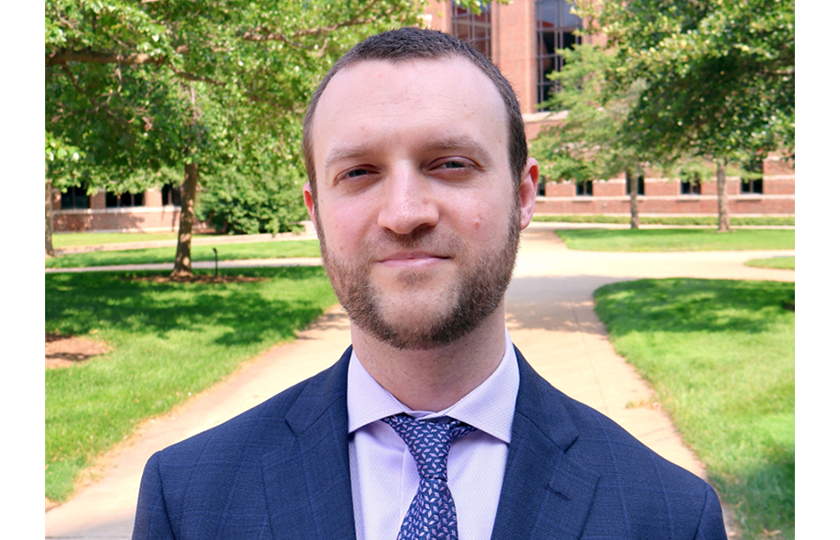
Keynote Speaker (3pm) - Dr Daniel Schiff
"Dilemmas in the AI-Enabled Classroom: Navigating Pedagogy, Ethics, and Transformation in the Era of AIED."
Abstract
Despite decades of work in the AIED space, it is only in the last few years that AI has begun to radically challenge the stability of tried-and-true practices and even overturn our understanding of the very goals of education. Many understand that AI has numerous benefits to offer to teaching and learning, but it is much less clear how to navigate pedagogical transformation, address complicated ethical trade-offs, and update institutional policies. In this presentation, I provide brief historical overview of AIED, and reflect on the ethical, pedagogical, and operational dilemmas it poses for modern education. While much uncertainty remains, I offer initial reflections on strategies for navigating transformation to respond to issues like assessment, equity, integrity, forward-looking skill development, and the role of educators and education itself.
Biography
Dr Daniel Schiff is an Assistant Professor of Technology Policy at Purdue University’s Department of Political Science and the Co-Director of GRAIL, the Governance and Responsible AI Lab.
As a policy scientist with a background in philosophy, he studies the formal and informal governance of AI through policy and industry, as well as AI's social and ethical implications in domains like education, the future of work, misinformation, and criminal justice. Daniel was the founding Responsible AI Lead at JP Morgan Chase & Co., Secretary of the IEEE 7010-2020 standard, the first AI ethics industry standard, and Director of Research, Evaluation, and Planning at the Philadelphia Education Fund.
He studied Philosophy at Princeton University, focusing on robotics and intelligent systems, before completing a Master’s in Social Policy at the University of Pennsylvania and PhD in Public Policy from the Georgia Institute of Technology. You can see his work in venues such as Policy Studies Journal, American Political Science Review, Science and Public Policy, Public Administration, Technology in Society, Review of Policy Research, AI & Society, Public Administration Review, the International Journal of AI in Education, IEEE Transactions on Technology & Society, the Journal of Engineering Education, the AMA Journal of Medical Ethics, and Nanotechnology.
Panel Four - 10am
Assessment Reform and Redesign in an Era of Generative AI.
Title
The AI Contribution Scale: Disclosing AI Usage in Academic Written Assessments.
Abstract
In recent years, the integration of artificial intelligence (AI) in educational settings has transformed the landscape of academic writing. This paper introduces an AI Contribution Scale designed to assess and document the extent of AI utilisation in student writing assignments. The scale delineates seven levels of AI usage across various stages of the writing process, including pre-writing tasks such as understanding the assignment, brainstorming and developing ideas, and conducting research, as well as writing tasks such as developing an outline, drafting, editing and proofreading, and formatting. By categorising AI involvement from minimal to extensive, this framework aims to promote transparency, encourage ethical use of AI tools, and facilitate fair assessment of student work. The implementation of this form not only aids educators in understanding the role of AI in student submissions but also empowers students to reflect on their use of technology in their academic endeavours. This paper discusses the development of the AI Contribution Scale, its potential benefits, and implications for teaching and learning in higher education.
Biography
Dr Patrick Buckland serves as a Teaching Fellow in Business Studies at Mary Immaculate College, specialising in leadership in higher education. Dr Buckland, with a significant interest in the transformative potential of generative AI within education, has Co-founded the Irish Centre of AI Research in Education (ICAIRE) at Mary Immaculate College.
Title
Mapping & Managing Academic Assessment Risk.
Abstract
Mapping & Managing Academic Assessment Risk. The new frontiers and challenges opening up through the rapid development of artificial intelligence present a spectrum of challenges for academic integrity. There are two risk areas of critical importance to educational systems: Maintaining the academic integrity of the current system in terms credibility of assessment design and conduct. Sustaining a system of academic integrity into the future that recognises the emerging potential of artificial intelligence in terms of human capacity building. The current system needs to derisk the evidential constructs on which learning is assessed. The current programmatic and modular learning outcomes were, for the most part, designed in a context that had more certainty regarding academic integrity. There are practices that can be adopted from industry to assist in managing assessment risks. The construction industry operates under health & safety regulations that can provide an important lens of analysis through which to view and treat the risks to academic integrity that are emerging from the use of artificial intelligence. Future assessment systems will have more freedom and evidence to allow the design of assessment that maintains integrity. However, the analogy of construction health & safety risk management and its application to assessment systems will provide assurance to stakeholders into the future. This proposal will present the audience with an original recontextualisation of assessment risk in terms of governance, assessment design and delivery and identify that there are two different risks domains, current and future, that need to be addressed.
Title
Back to the Start – Redesigning Robust Assessments in GenAI Environments: Principles, Strategies, Framework and Examples.
Abstract
In Higher Education, one key concern regarding GenAI is students’ inappropriate use of GenAI to breach academic integrity. While some blame this solely on GenAI, others argue that GenAI prompts us to reflect again on some of the issues related to traditional assessment design. Taking this perspective, this session will go back to the original question of assessment design and share principles, strategies and a suggested framework to redesign assessment with GenAI in mind. The presenter will first introduce 12 in-house principles on assessment design to uphold academic integrity (Dublin City University, 2021). These principles such as ‘co-designing assessments with students’ reinforce assessment validity while also engaging students in learning. Strategies to both design out and design in GenAI will also be discussed. Creative assessment approaches such as Interactive Orals will be shared, alongside a focus on integrating GenAI to improve learning efficiency and develop higher-order skills. These strategies will be exemplified with DCU’s teaching cases from various disciplines. The session will end with Derek Bruff’s (2023) 6-question framework to guide teachers to rethink the purpose, risks, and opportunities of assessment design in GenAI environments. Participants will leave the session with an understanding of how this framework and the strategies shared during the session can aid redesign solutions in their own assessment practice. Bruff, D. (2023, July 19). Assignment makeovers in the AI Age: Essay edition. Agile Learning. Dublin City University. (2021). Academic Integrity Principles for Assessment Design.
Biography – Samantha
Samantha (Jiaxin) Xu is the Academic Integrity Officer at Dublin City University. She is responsible for creating resources and workshops to support staff in curriculum and assessment design to uphold academic integrity. She is also researching effective assessment redesign strategies to uphold academic integrity in a Generative AI era.
Biography – Martina
Dr Martina Crehan is the Head of the Teaching Enhancement Unit at Dublin City University. With a background in Psychology and Education, Martina has expertise in teaching and learning in higher education, student engagement, curriculum design and reflective practice.
Panel Five - 11.30am
Curriculum Design, Teaching and Learning. (Part 2)
Title
Gen AI Literacy and Authentic Assessment: Problematising Bias and Ethics in Partnership with Students.
Abstract
Recent developments in generative AI have posed concerns and challenges around academic integrity in higher education assessment. In the context of general teacher education, students may have varied levels of experience in discipline-specific practices of music-making, potentially compounding assumptions and practices in relation to assessment in music and authentic music-making in education. In this presentation, I share insights from authentic assessment design and innovative approaches to real-world practices in group music-making teaching and learning. In particular, I argue that discipline-specific learning and assessment strategies are critical to meaning-making processes for learners in their development as musicians and as student teachers. Sharing insights and vignettes from practice in an instrumental music leadership module within primary teacher education, I present strategies for dialogical co-construction of authentic assessment with students that can promote academic integrity. The paper will conclude with a number of possibilities in which principles of assessment as learning (O’Neill, 2017) can foster opportunities for partnership approaches to ‘meaningful’ authentic assessment (McArthur 2021).
Biography
Dr Gwen Moore is Associate Professor of Music Education at Mary Immaculate College and Principal Fellow, HEA. She is Series Editor of the ISME Routledge Book Series on Music Education and serves on a range of international editorial boards. Gwen is Chair of the Society for Music Education in Ireland.
Title
Rethinking Third level Mathematics Education in the Age of AI.
Abstract
Traditionally, early third level mathematics classrooms have focused heavily on rote memorization, limit proofs, and algebraic manipulation. However, the widespread availability of powerful and free Large Language Models (LLMs) necessitates a pedagogical shift. This talk explores how educators can leverage AI tools in the classroom. The presentation will showcase the author's experiences integrating AI into their mathematics curriculum. Real classroom examples will be used to demonstrate the strengths of AI in fostering problem-solving skills, visualization, and real-world application of mathematics concepts. Additionally, the talk will address the limitations of AI in areas requiring critical thinking, creativity, and fostering a deep understanding of mathematical principles. By acknowledging both the potential and limitations of AI, this talk aims to spark a discussion on how to best utilize these powerful tools to create a more engaging and effective learning environment for young mathematicians.
Biography
Dr Patrick Browne is a lecturer at TUS with a PhD in mathematics from NUIG. His research interests span combinatorics, Lie theory, and mathematics education. He has taught at several Irish universities. His current research focuses on Riemannian geometry.
Title
Navigating the Waters from Vision to Viability; Adopting VR in the Classroom and its Alignment to Curriculum.
Abstract
Education can be a life-raft toward a better future. It is not a linear rite of passage but a meandering recognition of learning along the way. Aligned to the UN sustainable development goal (SDG) 4 Quality Education, advocacy of education for all, internationally, has led to education policy implementation across our global citizenship albeit at differing levels of accessibility and quality. It is widely recognised that the seminal work of Freire, Rousseau and Dewey have embedded the importance of active learning and critical pedagogy in our modern society. At the South East Technological University (SETU) we illuminate education as the keystone for progress, we promote education as a sustainable, complementary activity to economic, social and caring aspects of our society. As an integral part of the UN SDG’s how we meet the objectives are contextual and in Ireland we currently adopt a traditional in-person educational experience with many online programmes affiliated with options for lifelong learning rather than mainstream education. Thus the experience of the authors through SEERLab (South East Education Research Lab) to design and develop teaching and learning artefacts using Virtual Reality (VR) and Artificial Intelligence (AI), aligned to learning outcomes and their assessment is presented in this paper. The cases presented include modules from Nursing, Education, Business, Interactive Design programmes and PhD postgraduate programmes. The piloting of this technology is moving to reality and we present the potential benefits and limitations of VR and AI in HE classrooms.
Biography - Zeta
Dr Zeta Dooly is a Lecturer in Digital Education, Researcher and Supervisor at the Faculty of Education SETU. Zeta has led funded research with the European Commission, H2020, Horizon Europe and National agencies. Zeta was awarded SETU Early Career Research Award in 2023 and shortlisted for SETU Teaching excellence award in 2021.
Biography - Brian
Dr Casey has over 20 years’ experience in both commercial design and development and academic design research. From a primary focus on medical device design his interests encompass building design approaches for human centred design enhanced design creativity. Dr Casey is a Senior Lecturer at SETU and is the Head of Department of Humanities.
Roundtable Panel - 1.30pm
- Aisling Knox, Students' Union President, Mary Immaculate College
- Lucy Edith Kiiza, Postgraduate Students' Union President, University of Limerick
- Liam Conlon, N-TUTORR Academic Integrity Student Champion, Technological University of the Shannon
- Rose O’Loughlin, Assistant Professor Academic Support, Academic Learning Centre, Mary Immaculate College
- Dr Mary Giblin, Lecturer in Software Engineering, Technological University of the Shannon
Except where otherwise noted, content on the LEAD section of this website is licensed under a Creative Commons Attribution 4.0 International licence.
- Day 1: Monday 14 October
- Day 2: Tuesday 15 October



